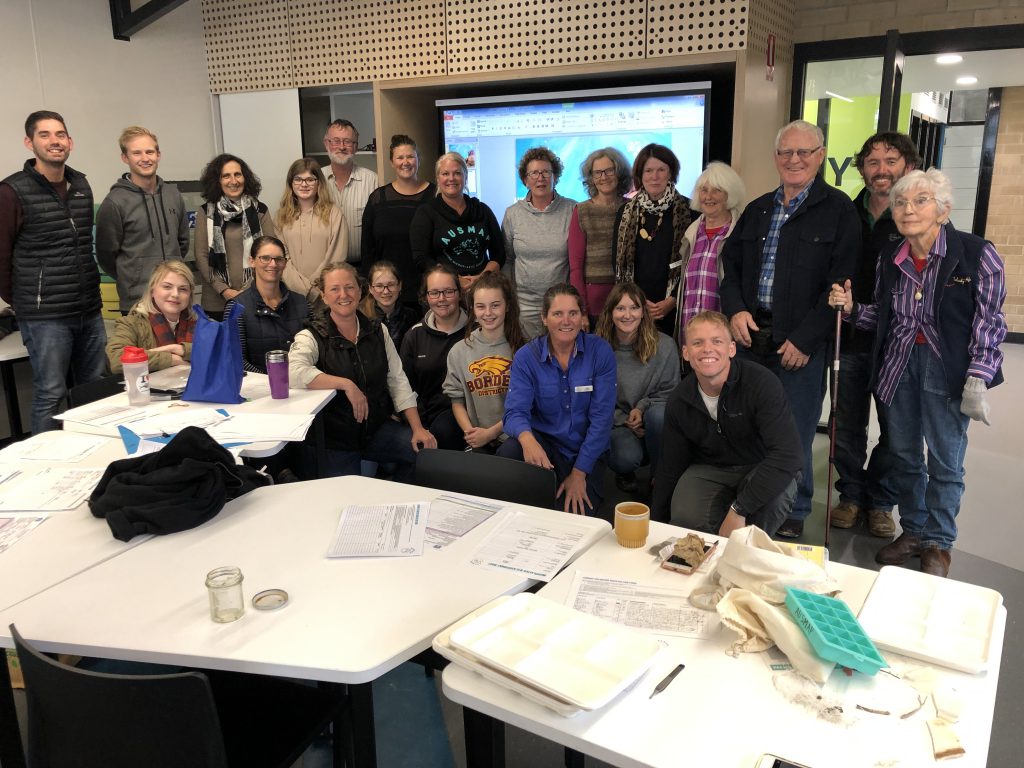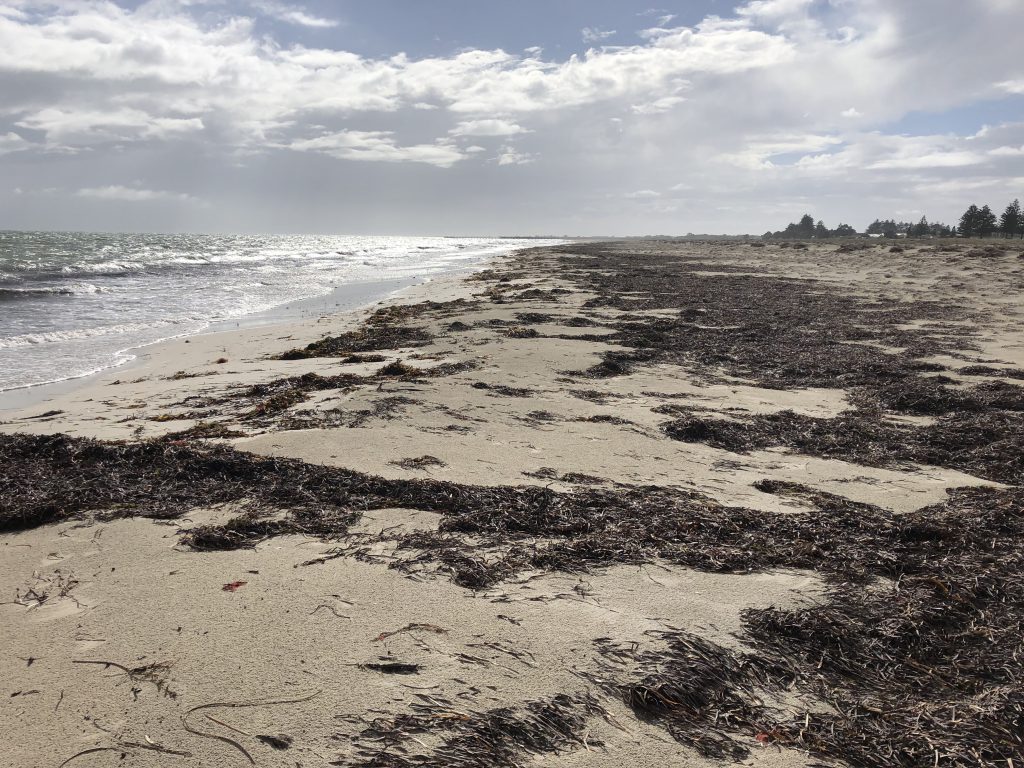Up close with micro-plastics
You might have heard that tiny pieces of non-biodegradable plastics are finding their way into our oceans and waterways. They can be consumed by wildlife that mistake them as food, or consume with their food. Those little plastic fragments potentially affect us too, so what do we do?
Last week I attended (along with 20 others) a fantastic AUSMAP training workshop at Kingston, South Australia. AUSMAP is a nationwide citizen science project thas a beaut website about how we can all help. Their training provides accreditation for monitoring micro-plastics in our waterways. The AUSMAP mission statement says it all: “It’s hard to solve a problem you can’t see. So we’re putting microplastic pollution on the map!”
As part of our training, we sampled along the Kingston foreshore. We measured a transect along the high water mark, laid quadrats, and then sieved the sand. Although the weather and high tide were challenging, we collected our samples for a closer look in the lab.
Micro-plastics are obviously small, we focussed on pieces between 1 mm and 5 mm. The good news was this section of beach contained no micro-plastics, only the regular large debris. This is unlike the beaches of some of our capital cities which can have more than 1000 pieces per square metre. Imagine that!
The AUSMAP method is suitable for any waterway which contains soft sediments including: wetlands, beaches, estuaries, creeks and rivers. AUSMAP is run by a dedicated team of scientists, activists and researchers who map pollution hotspots and help build a network of data collectors who work to save our river systems and coastlines. Keep an eye out for micro-plastic or AUSMAP activities in the future.

Micro-plastics crew at Kingston Community School with Michelle Blewitt (from AUSMAP) in back row (centre)
Thanks to Michelle and Louise from AUSMAP for a great day, and to Natural Resources South East and the Kingston Community School for supporting the training day and providing morning tea and lunch.

